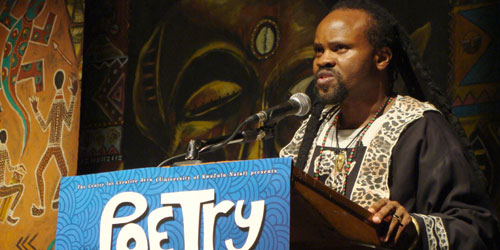Sexual and gender based violence in Africa
A New ACAS Bulletin edited by Daniel Moshenberg
This Bulletin began in response to news reports of “corrective” and “curative” gang rapes of lesbians in South Africa. These were then followed by news reports of a study in South Africa that found that one in four men in South Africa had committed rape, many of them more than once. We wanted to bring together concerned Africa scholars and committed African activists and practitioners, to help contextualize these reports. We wanted to address the ongoing situation of sexual and gender based violence on the continent, the media coverage of sexual and gender based violence in Africa, and possibilities for responses, however partial, that might offer alternatives to the discourse of the repeated profession of shock or the endless, and endlessly reiterated, cycle of lamentation. To that end, we have brought together writers of prose fiction (Megan Voysey-Braig), lawyer-advocates (Salma Maoulidi, Ann Njogu), poets (Chinwe Azubuike), trauma scholars (Sariane Leigh), human righs and women’s rights advocates (Michelle McHardy), gender and transgender advocates (Liesl Theron), activist researchers (Sasha Gear). These categories are fluid, since every writer here is involved in various activist projects, advocates in many ways. The writers do not pretend to `cover Africa’, and neither does the collection of their writings. The writings treat South Africa, Nigeria, Zanzibar, Kenya, Sierra Leone. They are meant to continue certain conversations, to initiate others.
Read more here : http://concernedafricascholars.org/analysis/acas-bulletin-83/
Download the Entire pdf (3.4mb) here: http://concernedafricascholars.org/docs/Bulletin83.pdf
Table of Contents
Sexual and gender based violence: everyday, everywhere, and yet… | pdf
Daniel Moshenberg
Untitled | pdf
Megan Voysey-Braig
Zanzibar GBV advocacy: important lessons for future legal reform strategies | pdf
Salma Maoulidi
Searching for the will to conscientiously prosecute sexual crimes in Zanzibar | pdf
Salma Maoulidi
Poet’s Note | pdf
Onwu Di
Of Widowhood
Chinwe Azubuike
Post conflict recovery in Sierra Leone: the spiritual self and the transformational state | pdf
Sariane Leigh
To be a woman in Kenya: a look at sexual and gender-based violence | pdf
Ann Njogu and Michelle McHardy
Trans-hate at the core of gender based violence? | pdf
Liesl Theron
Manhood, violence and coercive sexualities in men’s prisons: dynamics and consequences behind bars and beyond | pdf
Sasha Gear
Supplemental Material
Profile: Dr Denis Mukwge
Lelly Morris / The Lancet
Interview: Sexual terrorism in eastern DRC
Amy Goodman interveiws Christine Shuler Deschryver
Report: Soldiers who rape, commanders who condone
Human Rights Watch
The Association of Concerned African Scholars (ACAS) is a network of academics, analysts and activists. ACAS is engaged in critical research and analysis of Africa and U.S. government policy; developing communication and action networks; and mobilizing concerned communities on critical, current issues related to Africa. ACAS is committed to interrogating the methods and theoretical approaches that shape the study of Africa.

